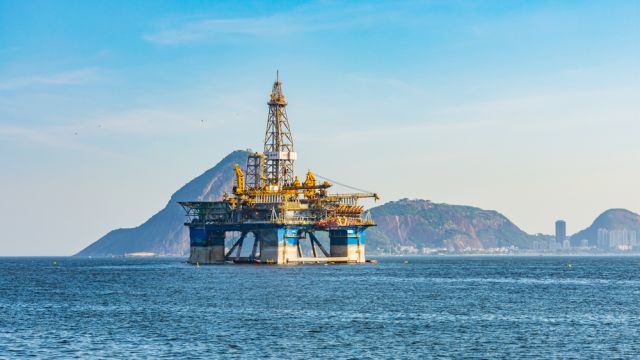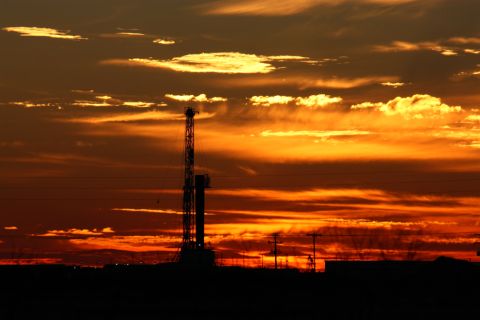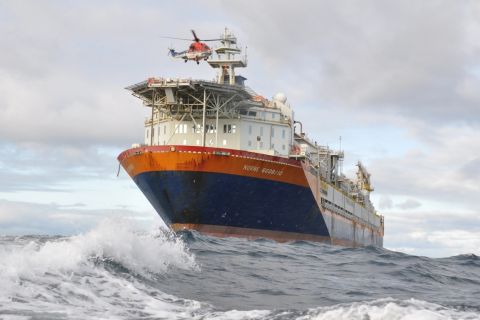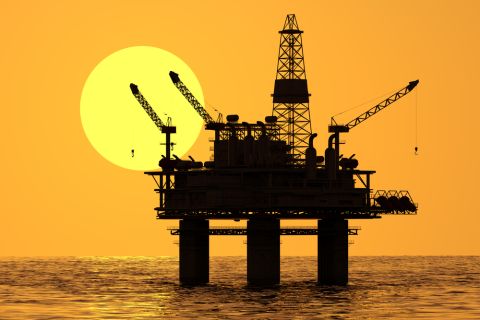
Oil exploration in the Santos Basin. (Source: Shutterstock)
France’s TotalEnergies and Brazil’s state-owned Petrobras have taken a final investment decision (FID) with their partners for the second development phase of the Atapu and Sépia fields located in the pre-salt Santos Basin offshore Brazil.
Sépia-2 and Atapu-2 are the tenth and eleventh FPSO for TotalEnergies in Brazil and will contribute to Total’s more than 200,000 boe/d production capacity, TotalEnergies President of E&P Nicolas Terraz said May 27 in a company press release.
“Following the startup of Mero-2 in late 2023 and the upcoming startups of Mero-3 in 2024 and Mero-4 in 2025, Brazil will soon account for more than 200,000 boe/d in equity production for the company,” Terraz said.
Each field will receive a new-build FPSO, which are expected to start producing in 2029, TotalEnergies said in the release.
The Atapu-2 second development phase will include a new-build FPSO with 225,000 bbl/d of capacity. TotalEnergies owns a 15% interest in the Atapu field. Partners in the field include: Petrobras (65.7%, operator), Shell (16.7%), Petrogal (1.7%) and PPSA (0.9%).
The Atapu field has been producing since 2020 through the P-70 FPSO. The vessel has a 150,000 bbl/d production capacity.
The Sépia-2 second development phase will also include a new-build FPSO with 225,000 bbl/d of capacity. TotalEnergies owns an interest of 16.9% in the Sépia field. Partners in the field include Petrobras (55.3%, operator), Petronas (12.7%), QatarEnergy (12.7%) and Petrogal (2.4%).
The Sépia field has been producing since 2021 through the Carioca FPSO, which has a 180,000 bbl/d production capacity.
Both of the new-build FPSOs will be designed to minimize greenhouse gas emissions through an all-electric configuration and technologies such as waste heat recovery, closed flare, cargo oil tank gas recovery and variable speed drive for compressors and pumps, TotalEnergies said in the release.
Recommended Reading
Barnett & Beyond: Marathon, Oxy, Peers Testing Deeper Permian Zones
2024-04-29 - Marathon Oil, Occidental, Continental Resources and others are reaching under the Permian’s popular benches for new drilling locations. Analysts think there are areas of the basin where the Permian’s deeper zones can compete for capital.
Halliburton’s Low-key M&A Strategy Remains Unchanged
2024-04-23 - Halliburton CEO Jeff Miller says expected organic growth generates more shareholder value than following consolidation trends, such as chief rival SLB’s plans to buy ChampionX.
Vår Selling Norne Assets to DNO
2024-05-08 - In exchange for Vår’s producing assets in the Norwegian Sea, DNO is paying $51 million and transferring to Vår its 22.6% interest in the Ringhorne East unit in the North Sea.
SLB OneSubsea JV to Kickstart North Sea Development
2024-05-07 - SLB OneSubsea, a joint venture including SLB and Subsea7, have been awarded a contract by OKEA that will develop the Bestla Project offshore Norway.
TotalEnergies Acquires Eagle Ford Interest, Ups Texas NatGas Production
2024-04-08 - TotalEnergies’ 20% interest in the Eagle Ford’s Dorado Field will increase its natural gas production in Texas by 50 MMcf/d in 2024.





